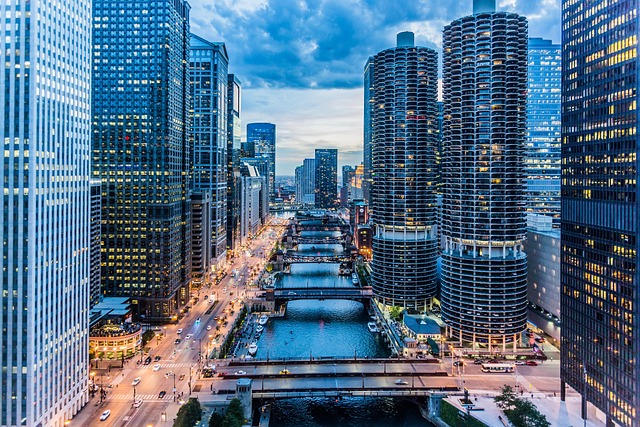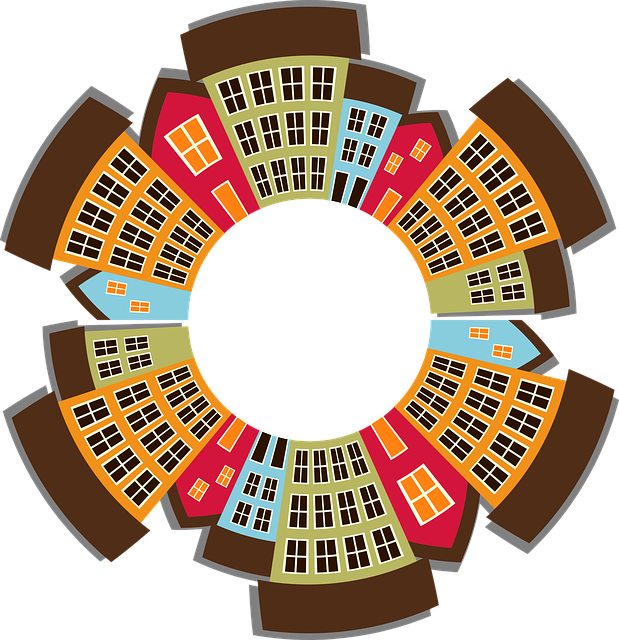Frere Town, Karachi's bustling heart, faces severe waste management challenges due to its diverse demographics and rapid urbanization. However, innovative solutions tailored for organic, recyclable, and hazardous waste can transform these issues into opportunities. By empowering residents, implementing advanced technologies, and fostering strategic planning, Frere Town can become a model for sustainable practices, revolutionizing environmental stewardship in Karachi and setting an example across Pakistan.
“Karachi’s Frere Town, a bustling urban center, faces significant waste management challenges. This article delves into the intricate landscape of waste disposal practices in the area, examining the current state and identifying key issues. From ill-managed collection systems to inadequate recycling facilities, we explore the obstacles locals face daily. Furthermore, innovative solutions are proposed to enhance sustainability, with a focus on community involvement. By understanding Frere Town’s unique context, Karachi can forge a path towards a cleaner, more sustainable future.”
- Understanding Waste Management in Karachi's Frere Town
- Current State of Waste Disposal Practices
- Challenges and Issues Faced by Locals
- Innovative Solutions for Better Waste Management
- Community Involvement and Future Prospects
Understanding Waste Management in Karachi's Frere Town

In the bustling metropolis of Karachi, Frere Town stands out as a vibrant yet challenging community in terms of waste management. Understanding the unique dynamics of this urban area is crucial to implementing effective strategies for keeping its streets clean and promoting environmental sustainability. The diverse demographics and economic activities in Frere Town contribute significantly to the city’s overall waste generation, making efficient waste collection and disposal systems imperative.
Karachi’s diverse landscape, including residential areas, commercial hubs, and industrial zones, all converge in Frere Town, creating a complex waste management scenario. The area faces specific challenges such as illegal dumping sites, inadequate sanitation infrastructure, and the need for segregated waste collection to cater to different types of waste—from organic and recyclable materials to hazardous substances. By adopting innovative solutions tailored to these issues, the community can move towards becoming a model of responsible waste management, setting an example for other parts of Karachi.
Current State of Waste Disposal Practices

In Karachi, the current state of waste management practices presents a complex challenge. The rapid urbanization and growing population have significantly increased the volume of waste generated daily, causing severe environmental issues. Traditional methods of disposal, such as open dumping and burning, are no longer sustainable due to their detrimental impacts on air quality, soil fertility, and public health. These practices not only contribute to greenhouse gas emissions but also pose risks to nearby communities, particularly in densely populated areas like Frere Town.
The current waste management scenario in Karachi is characterized by a lack of efficient infrastructure and inadequate recycling facilities. Most residential and commercial areas lack proper collection systems, leading to indiscriminate dumping in open spaces and waterways. This not only causes aesthetic pollution but also creates breeding grounds for disease-carrying vectors. In Frere Town, residents often resort to self-managed waste disposal, highlighting the urgent need for a comprehensive, scientifically backed, and community-inclusive waste management strategy to transform these practices and ensure a cleaner, healthier environment.
Challenges and Issues Faced by Locals

In Frere Town, Karachi, residents face significant challenges in waste management due to a combination of factors. One major issue is the lack of adequate infrastructure, such as proper garbage collection systems and designated dumping sites. This results in indiscriminate dumping in open spaces, roadsides, and even water bodies, causing severe environmental pollution and health hazards for locals. The city’s rapid urbanization has further exacerbated these problems, with an influx of people leading to increased waste generation that outstrips the existing management capacities.
Additionally, lack of public awareness and education about responsible waste disposal practices contributes to the problem. Many residents are unaware of the proper segregation and handling of different types of waste, such as plastic, paper, and organic material. This results in mixed and contaminated waste, making recycling efforts less effective. The absence of a robust community engagement strategy for waste management initiatives has also hindered progress, underscoring the need for inclusive solutions that empower locals to take an active role in keeping their neighborhood clean and sustainable.
Innovative Solutions for Better Waste Management

In the bustling metropolis of Karachi, innovative solutions are emerging to tackle the challenges of waste management. Traditional methods are no longer sufficient to keep up with the city’s rapid growth and increasing waste generation. One such solution is the adoption of advanced recycling technologies that can process a wider range of materials, including plastics and organic waste, to create valuable resources. For instance, implementing decentralized recycling plants in different areas of Frere Town could significantly reduce the environmental impact and promote a circular economy.
Additionally, smart waste management systems are being introduced, leveraging digital technology to optimize collection routes, monitor filling levels at landfills, and enhance overall efficiency. These systems use sensors and data analytics to improve real-time decision-making, ensuring that waste is managed in an eco-friendly manner. With the right blend of technological innovation and strategic planning, Karachi can move towards a cleaner, more sustainable future while setting an example for effective waste management practices across Pakistan.
Community Involvement and Future Prospects

In the vibrant city of Karachi, Frere Town has been at the forefront of innovative waste management strategies, with community involvement playing a pivotal role in its success. The residents’ active participation in recycling initiatives and sanitation programs has not only improved the town’s cleanliness but also fostered a sense of collective responsibility. This grassroots effort has set an example for other areas in Karachi, demonstrating that effective waste management is achievable through community-driven solutions.
Looking ahead, Frere Town’s future prospects in waste management are promising. With continued community engagement and the adoption of advanced technologies, the town can become a model for sustainable practices across the metropolis. By encouraging more eco-friendly habits and investing in efficient waste processing systems, Karachi can move towards a greener and healthier future, ensuring that Frere Town remains a shining example of environmental stewardship.
The complex landscape of waste management in Frere Town, Karachi, demands immediate attention and innovative solutions. By addressing the current challenges and leveraging community involvement, it is feasible to transform waste disposal practices into a sustainable and efficient system. Incorporating advanced technologies and promoting environmental awareness can significantly enhance the quality of life for residents. Moving forward, a holistic approach that involves local authorities, businesses, and citizens is crucial for creating a cleaner, greener, and healthier Frere Town.



